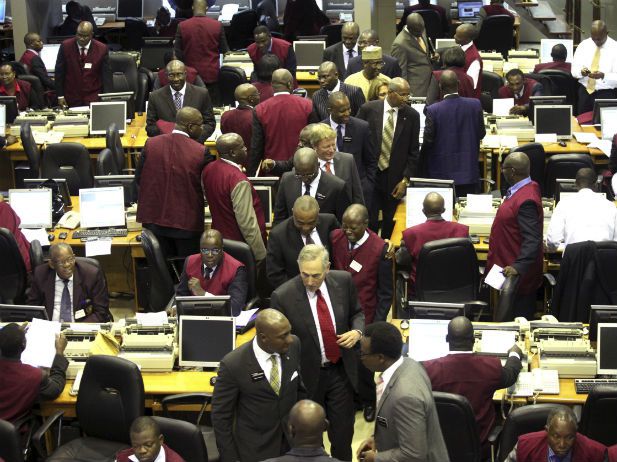This post has already been read 1307 times!
The stock market showed significant resilience in April and gained N604 billion in spite of the effects of the COVID-19 pandemic as some investors found the Nigerian bourse attractive in anticipation of a rebound.
The market had dipped by 20.6 per cent in the first quarter of 2020 and a positive performance was not envisaged given the COVID-19 pandemic that has impacted negatively on the global economy, Nigeria not excluded.
However, contrary to the expectation that the market would continue on a negative trend, it gained N604 billion as the Nigerian Stock Exchange (NSE) equities market capitalisation moved from N11.393 trillion at the end of Q1 to N11.997 trillion at the end of April. Also, the NSE All-Share Index appreciated 5.3 per cent from 21,861.78 to 23,021.01.
Market operators and analysts attributed the low valuation of equities, improved first quarter results and liquidity through the payment of dividends by some companies as some of the factors that influenced the positive performance in April.
Commenting, Senior Equity Research Analyst at Cordros Capital, Mr. Mustapha Wahab, said the April’s market return pointed to the fact that equities risks appeared to have been largely priced in.
“For us in Cordros, we believe the ultra-selloffs witnessed in March were an overreaction and that the market is now in a stronger condition than at the beginning of this COVID-19 episode. In other words, the panic element has eased significantly in our opinion. There have been a few developments over the recent past weeks, which I believe provide respite for investors. For one, Nigeria received the International Monetary Fund (IMF)’s approval for $3.4 billion (N1.2 trillion) loan request. The approval came earlier than expected and is the IMF’s largest COVID-19 emergency financing provided to date. While the loan will do little to address the significantly stressed balance of payment condition, it sure will provide some notable support to the 2020 budget in a year where government spending is necessary,” Wahab said.
He added that the positive results posted by some companies in the Q1 of 2020, also impacted the growth posted in April.
“On the corporates side, we have seen some fairly impressive first quarter results thus far. The cumulative banks’ earnings that have been published to date show earnings growth of eight per cent, with core income lines and asset quality fairly strong. “For consumer goods companies, we like the fact that Nigerian Breweries Plc maintained revenue at last year’s level, even though profit was weaker (owing to high operating expenses). As expected, MTN Nigeria Communications Plc delivered strong numbers, driven by strong growth across revenue lines,” he said.
A stockbroker and Managing Director of APT Securities and Funds Limited, Mallam Garbar Kurfi, said most prices hit very comfortable valuations in March due to the exit of foreign investors fear of naira devaluation.
“Many stocks fell to very low levels and the only way is to appreciate. For instance, Zenith Bank fell to N10.85; GTBank to N16.80; Nigerian Breweries Plc, N22.00; Nestle Nigeria Plc, N760; and Dangote Cement Plc, N117 among others.
“Also, the good dividend declared by some of the companies attracted more demand, which eventually led to the gain recorded in the month,” Kurfi said.
He added that the federal government’s decision to relax the lockdown on Lagos, Ogun States, and Federal Capital Territory and the approval of IMF for $3.4 billion gave hope to the economy.
Another stockbroker and Managing Director of Network Capital Limited, Mr. Oluropo Dada, said the digital channels deployed by the NSE to support remote trading, which was overwhelmingly embraced by the traders, was also a contributing factor.
“Everything worked seamlessly to the advantage of the market. The Q1 results of those big banks that provides over 65 per cent of the trading activities in the sector were released to the market and those results compared favourably with the historical records, meaning that those banks are still creating values. Also, dividend declared for 2019 financial years were paid by major banks during the month, thereby providing liquidity to the shareholders and by extension to the market,” he stated.



